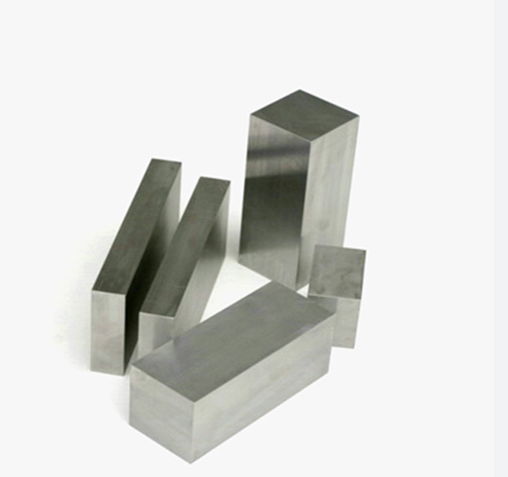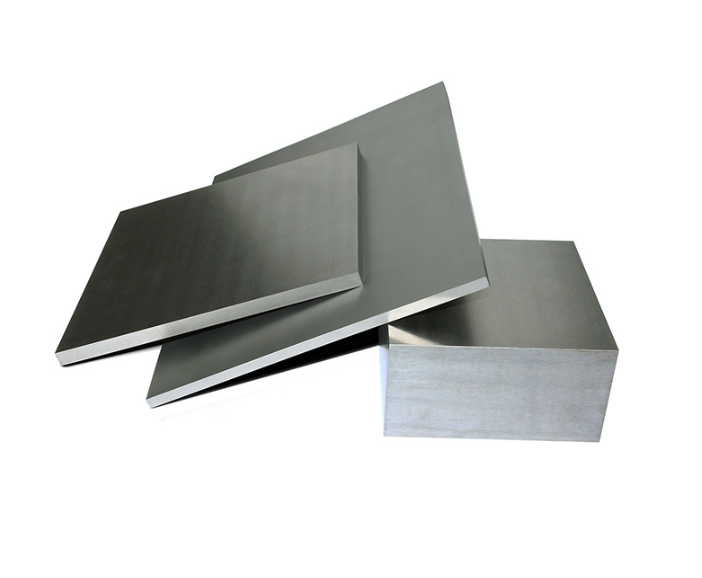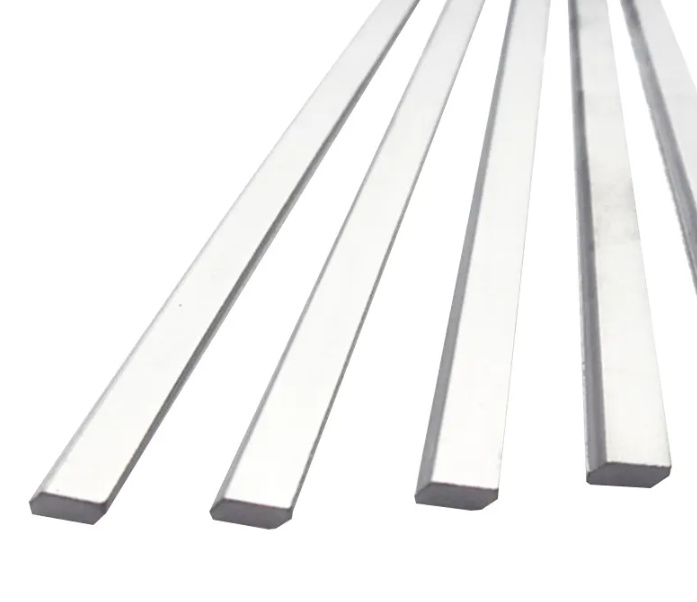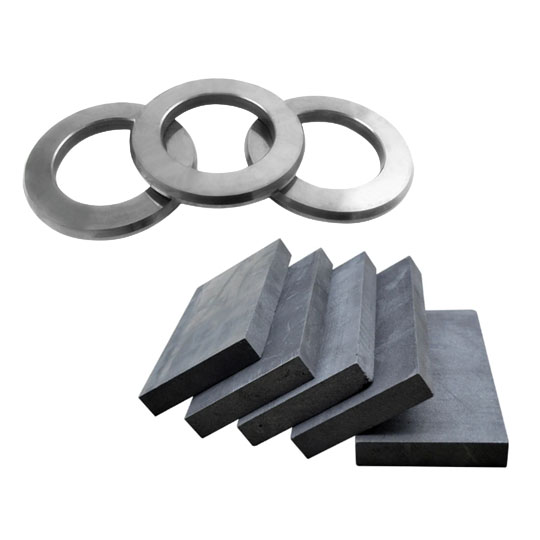Overview
Carbide inserts are indispensable tools in the manufacturing industry, known for their hardness, wear resistance, and ability to maintain a sharp cutting edge. These inserts are made from carbide, a material composed of carbon and a metal, usually tungsten. They come in various shapes, sizes, and compositions, each tailored to specific applications. Whether you’re in the market for carbide inserts or seeking more information about their suppliers, this guide will provide a detailed overview.
Understanding Carbide Inserts
Carbide inserts are cutting tools used in CNC machining and other industrial processes. They are made by sintering powdered carbide material to create a hard, wear-resistant product. The most common material for these inserts is tungsten carbide, which offers excellent durability and cutting performance.
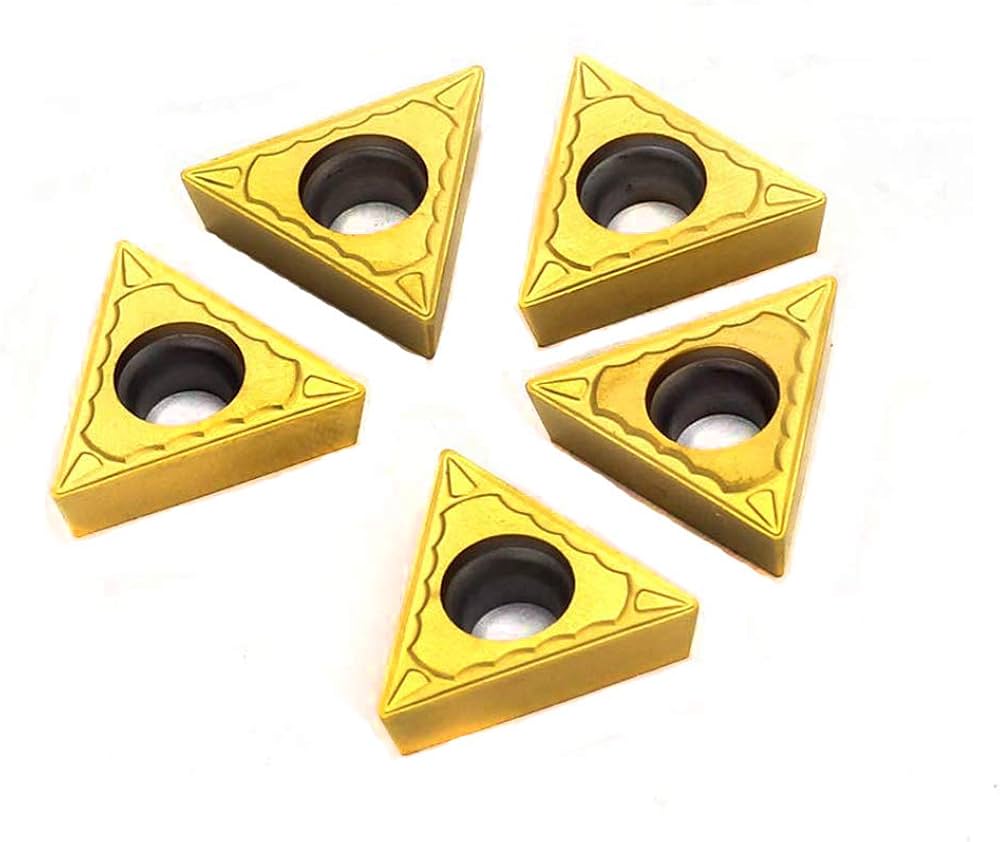
Types of Carbide Inserts
Carbide inserts come in various types, each designed for specific tasks. Here are some common types:
| Type of Carbide Insert | Description |
|---|---|
| Turning Inserts | Used for turning operations to remove material from a rotating workpiece. |
| Milling Inserts | Designed for milling operations, removing material from a workpiece to shape it. |
| Drilling Inserts | Used in drilling applications to create holes in materials. |
| Boring Inserts | Used for enlarging existing holes to precise dimensions. |
| Threading Inserts | Designed for creating threads on a workpiece. |
| Grooving Inserts | Used to cut grooves into a workpiece. |
Applications of Carbide Inserts
Carbide inserts are versatile and used in a wide range of industries. Here’s a breakdown of their applications:
| Application | Industry |
|---|---|
| Turning | Automotive, Aerospace |
| Milling | Tool and Die, Mold Making |
| Drilling | Oil and Gas, Construction |
| Boring | Heavy Equipment Manufacturing |
| Threading | Plumbing, Fasteners |
| Grooving | Electronics, Medical Devices |
Material Properties
The performance of carbide inserts is influenced by their material properties. Here’s a table outlining the key properties:
| Property | Description |
|---|---|
| Hardness | The ability to resist deformation and wear. |
| Toughness | The ability to absorb energy without fracturing. |
| Wear Resistance | The ability to resist material loss due to friction. |
| Thermal Stability | The ability to retain properties at high temperatures. |
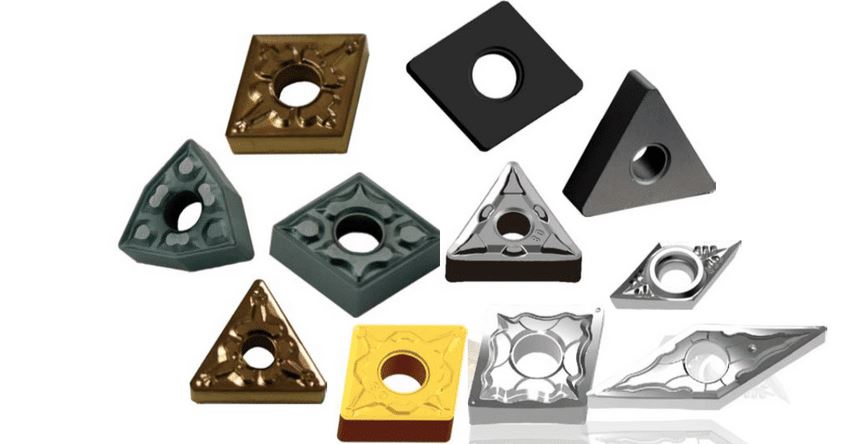
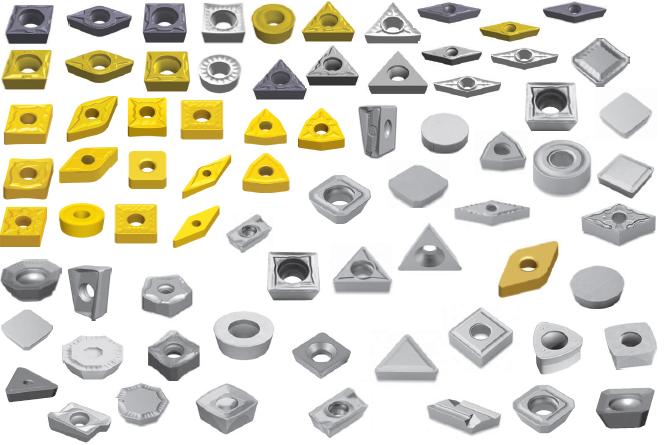
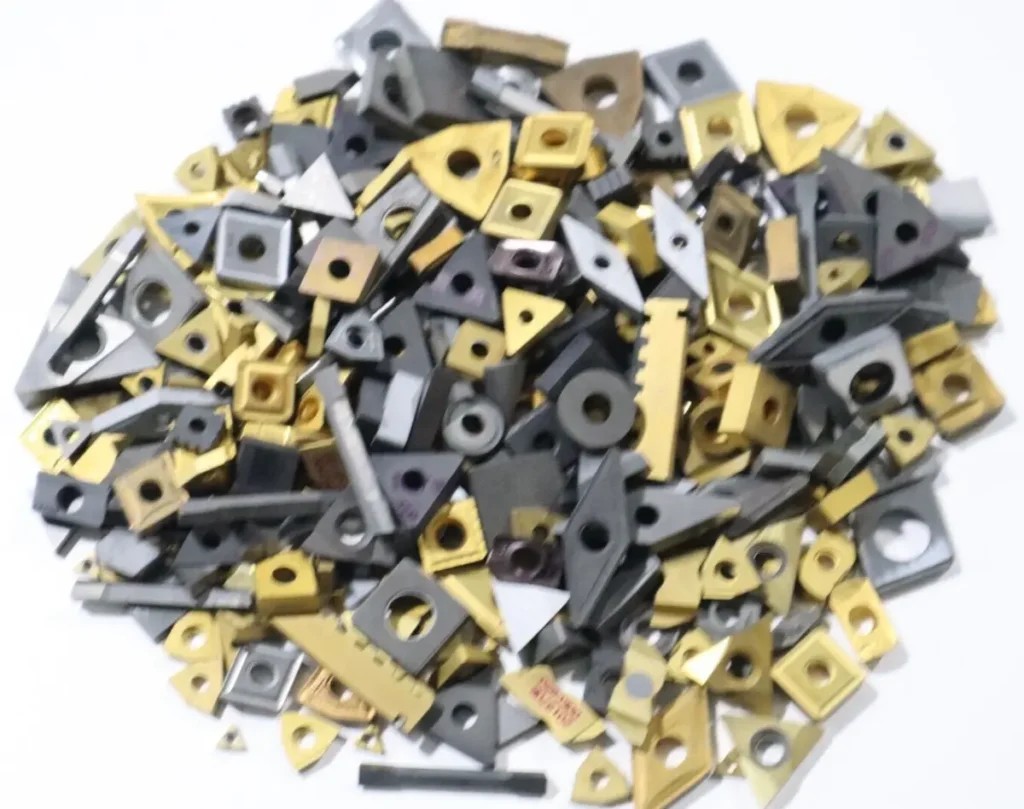
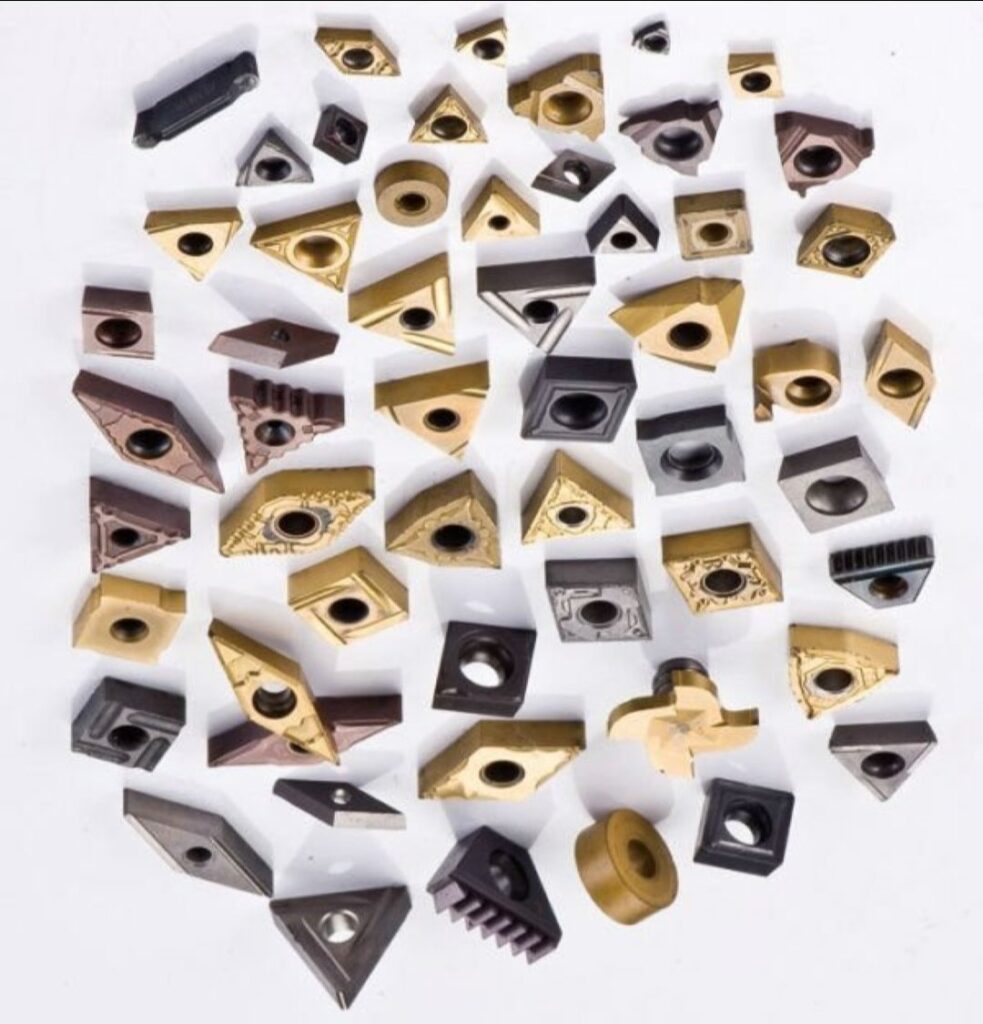

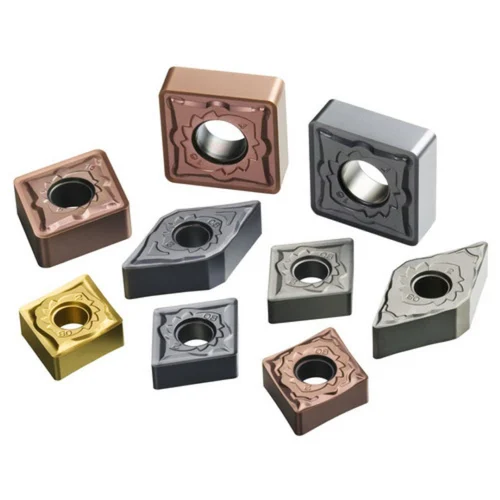
Composition and Characteristics
Carbide inserts are made from a combination of materials that determine their characteristics. Here’s a detailed look at their composition:
| Component | Properties |
|---|---|
| Tungsten Carbide (WC) | Provides hardness and wear resistance. |
| Cobalt (Co) | Acts as a binder, providing toughness. |
| Titanium Carbide (TiC) | Increases resistance to crater wear. |
| Tantalum Carbide (TaC) | Enhances high-temperature strength. |
Hardness, Strength, and Wear Resistance
The following table summarizes the hardness, strength, and wear resistance of carbide inserts:
| Property | Value |
|---|---|
| Hardness (HRA) | 89-92 |
| Compressive Strength (MPa) | 4000-6000 |
| Wear Resistance | High |
Specifications, Sizes, Shapes, and Standards
Carbide inserts are available in various specifications, sizes, and shapes to meet different requirements. Here’s a table detailing these aspects:
| Specification | Size | Shape | Standard |
|---|---|---|---|
| ISO | Various | Triangle, Square, Round | ISO 1832 |
| ANSI | Various | Diamond, Trigon | ANSI B212.4 |
Selecting the Right Carbide Inserts
Choosing the right carbide insert involves considering several factors:
| Factor | Consideration |
|---|---|
| Material | The type of material being machined. |
| Operation | The specific machining operation (turning, milling, etc.). |
| Machine Tool | Compatibility with the machine tool. |
| Cutting Conditions | Speed, feed, and depth of cut. |
Comparing Carbide Inserts
Comparing different carbide inserts can help you select the best one for your needs. Here’s a comparison table:
| Feature | Insert A | Insert B |
|---|---|---|
| Hardness | 90 HRA | 91 HRA |
| Wear Resistance | High | Very High |
| Price | $$ | $$$ |
| Application | General | Specific |
Top Carbide Inserts Suppliers
Here are some top suppliers of carbide inserts, along with their offerings and pricing details:
| Supplier | Specialty | Pricing (per insert) |
|---|---|---|
| Kennametal | High-performance inserts | $10-$30 |
| Sandvik Coromant | Versatile range | $15-$40 |
| ISCAR | Precision inserts | $12-$35 |
| Walter | Durable inserts | $14-$38 |
Pricing Details
Pricing for carbide inserts can vary based on the type, material, and supplier. Here’s a breakdown:
| Type of Insert | Price Range (per insert) |
|---|---|
| Turning | $10-$30 |
| Milling | $12-$35 |
| Drilling | $15-$40 |
| Boring | $14-$38 |
| Threading | $12-$32 |
| Grooving | $10-$28 |

FAQs
| Question | Answer |
|---|---|
| What are carbide inserts used for? | Carbide inserts are used for cutting, shaping, and finishing materials in various industrial applications. |
| Why are carbide inserts preferred over other materials? | They offer superior hardness, wear resistance, and thermal stability, resulting in longer tool life and better performance. |
| How do I choose the right carbide insert? | Consider the material being machined, the specific operation, machine tool compatibility, and cutting conditions. |
| What are the key properties of carbide inserts? | Hardness, toughness, wear resistance, and thermal stability. |
| Who are the top suppliers of carbide inserts? | Kennametal, Sandvik Coromant, ISCAR, and Walter. |
| How much do carbide inserts cost? | Prices range from $10 to $40 per insert, depending on the type and supplier. |
Conclusion
Carbide inserts are a crucial component in modern manufacturing, offering unmatched performance in a variety of applications. Understanding the different types, properties, and suppliers can help you make informed decisions, ensuring you get the best value for your investment. Whether you’re machining metal or creating intricate designs, choosing the right carbide insert can significantly impact your productivity and the quality of your work.
By considering the detailed information and comparisons provided in this guide, you can navigate the world of carbide inserts with confidence and precision.

